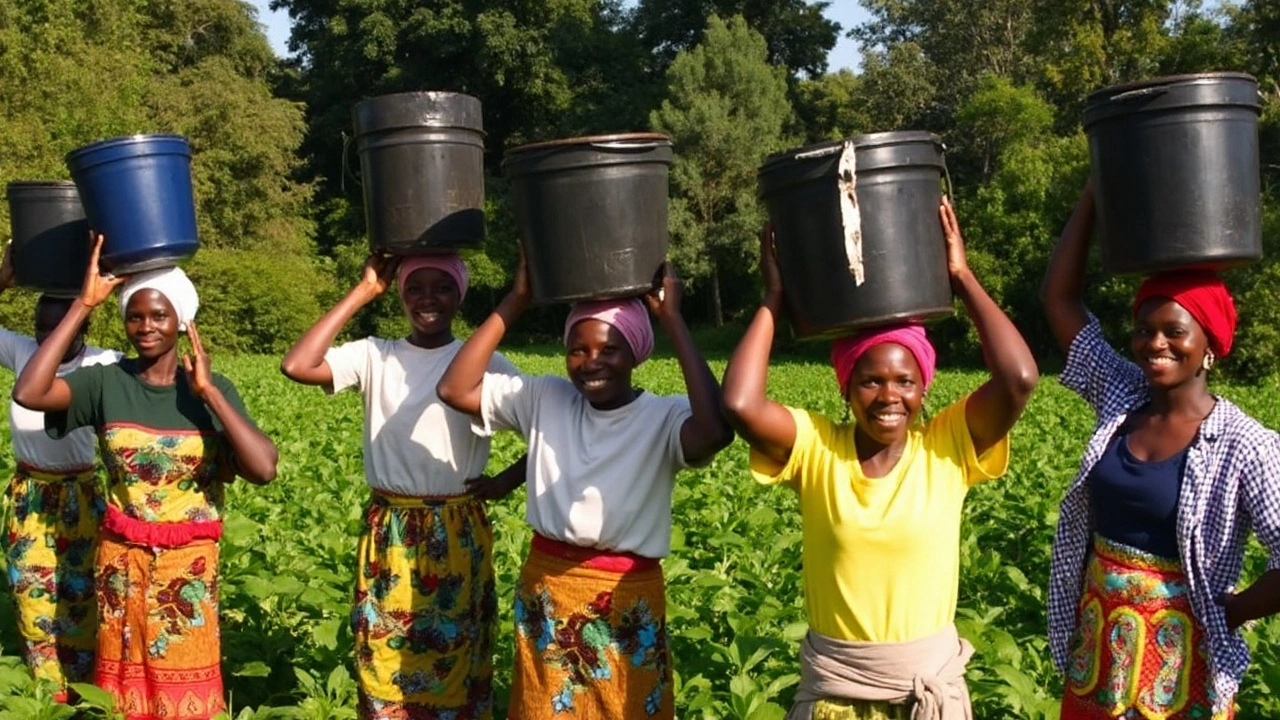Why Sainsbury’s is pushing human rights up the agenda
Bananas moved a major UK grocer to act early. In 2024, Sainsbury's says it got fairer wages to plantation workers three years ahead of the industry’s 2027 target, and it didn’t stop there. The supermarket also earned a top-tier “Leading on human rights innovation” rating in the CCLA Modern Slavery Benchmark—an investor-led ranking that tracks how companies find, fix, and prevent forced labor risks. For a sector that buys from complex, far‑flung farms and factories, that’s a notable signal.
The company frames this as a business issue as much as a moral one: stable suppliers, safer workplaces, and fairer pay reduce risk and keep products on shelves. This isn’t theory. UK retailers have seen how climate shocks, price swings, and labor abuses can tangle supply chains. When workers are underpaid or unsafe, quality drops, turnover rises, and shipments stall. Paying attention to human rights is now part of staying competitive.
Sainsbury’s says its strategy rests on four focus areas that show up in everyday buying decisions, not just in boardroom statements:
- Build human rights into purchasing: buyers are asked to consider worker welfare—alongside price and quality—when they place orders and set volumes.
- Set minimum sourcing requirements with due diligence: suppliers must meet baseline standards, and the grocer runs checks to spot red flags before and after contracts are signed.
- Target the highest risks: programs zero in on issues like modern slavery, recruitment fees charged to migrant workers, long hours, or unsafe conditions.
- Push for industry collaboration: because no supermarket controls a farm alone, the company teams up with certification bodies, NGOs, and peers to change how entire categories are bought.
That last point matters. Food supply chains are shared. If one buyer pays fairly but others don’t, the farm still struggles. Joint standards and long‑term commitments are how you lock in change.
Sainsbury’s track record on Fairtrade underlines the approach. For nine straight years, it has sold more Fairtrade bananas and sugar than any other UK grocer. Since 2000, banana sales alone have sent an estimated £75 million to Fairtrade producers through the Fairtrade Premium—cash that communities can use for wages, safety gear, childcare, or local projects. That steady demand gives farmers and workers a cushion when storms, disease, or global price slides hit.
There’s also growing regulatory pressure. The UK Modern Slavery Act requires large firms to report on how they address forced labor risks. New EU due‑diligence rules are phasing in, and multinationals that sell into Europe will have to show deeper checks and remediation plans. Investors, too, are more vocal. Benchmarks like CCLA’s increasingly affect how funds rate a company’s long‑term risk.

Inside the banana wage plan—and what comes next
The flagship move sits in bananas, a product UK shoppers buy weekly and expect to be cheap. Sainsbury’s, working with Fairtrade, supplier Fyffes, and the Sustainable Trade Initiative (IDH), agreed to pay a premium above the standard cost for every box of bananas. The money goes to close the gap between what workers earn now and a fairer wage level, and to support better farm practices. Crucially, the company accelerated the timeline and says it delivered wage improvements three years early.
Why bananas? They’re a test case. Volumes are big, margins are thin, and the crop faces climate pressure—from storms in the Caribbean to heat and disease in Latin America. If a retailer can build a wage model that holds up in bananas, it can apply pieces of it to other crops like cocoa, coffee, tea, and berries.
The plan tackles two chronic problems. First, wage gaps: even where legal minimums are met, pay can fall short of what worker‑households need to cover decent housing, food, healthcare, and transport. Second, volatility: farms get whiplashed by changing orders, currency moves, fertilizer costs, and extreme weather. Paying a premium and offering multi‑year contracts gives farms a clearer runway to plan, invest, and keep workers on payroll in tough seasons.
Here’s how the approach fits together on the ground:
- Price signal: the per‑box premium is tied to closing wage gaps identified by recognized methodologies and local data, instead of one‑off bonuses that vanish next season.
- Verification: certification schemes and independent partners check that money reaches workers and supports safer conditions, not just farm overheads.
- Contract stability: longer contracts cut the risk that farms will underpay or cut corners just to survive a bad harvest or a currency swing.
- Community benefits: through the Fairtrade Premium, workers and producers can fund things like protective equipment, childcare, training, or housing improvements.
Sainsbury’s links this to its climate plans, calling it a “just transition” to Net Zero. Farms can’t invest in lower‑carbon energy, efficient irrigation, or regenerative soil work if workers are living on the edge and suppliers lack cash flow. Wage security and stable orders make climate upgrades more realistic and durable.
There are clear signs of momentum. On top of the banana work, the company says its buyers use minimum sourcing requirements and due‑diligence checks across categories, backed by targeted actions in places with high risk of labor abuse—think long supply chains with migrant labor or seasonal peaks. The CCLA recognition suggests investors see the program as more than box‑ticking.
But none of this is easy. Food inflation has squeezed shoppers, and bananas are an everyday price benchmark in the UK. Push prices too high, and you lose volume. Pay too little, and you shift the problem back onto workers. The challenge is to use premiums, longer contracts, and smarter procurement to protect wages without loading sudden costs onto households already under pressure.
What would good look like from here? Three things stand out.
- Transparent wage gaps and progress: publish the size of the wage gap per region, how much the premium closes, and the share of workers covered. Simple charts help people see movement year by year.
- Worker voice: scale grievance channels and worker committees so people can speak up about conditions, recruitment fees, or retaliation without losing shifts. The most elegant policy on paper is worthless if workers can’t report issues safely.
- Category spillover: take the banana playbook to other sensitive crops and to UK‑based supply chains where seasonal labor, housing, and transport are headaches. Consistency matters.
Industry cooperation will make or break this. If more supermarkets align premiums and contract terms, producers won’t face a patchwork of demands. Standardizing the basics—no recruitment fees charged to workers, safe housing for seasonal labor, realistic lead times, and predictable volumes—can lift the floor for the whole sector.
For shoppers, the details may feel distant, but they show up in small ways: fruit that arrives on time, fewer out‑of‑stock signs, farm workers who stay in their jobs because the pay and conditions are decent. For investors, stronger human rights controls mean fewer surprises—fewer supply shocks, fewer legal risks, fewer reputational hits that drag on valuation.
Here are the markers to watch over the next 12 months:
- Coverage: the percentage of banana workers whose wages are topped up by the premium, and whether the model expands to other origins.
- Contract length: how many supplier contracts shift to multi‑year terms and how that affects farm investment.
- Incident handling: the speed and outcome of any reported labor abuses, including remediation for affected workers.
- Data quality: clearer disclosure on due‑diligence checks—how many sites assessed, what was found, and what was fixed.
Sainsbury’s has the scale to move the market. Leading UK sales of Fairtrade bananas and sugar for nine years straight created a bedrock of trust with producers. Delivering wage gains ahead of the 2027 target shows execution, not just ambition. The harder test now is consistency—keeping premiums in place when budgets tighten, carrying lessons into other categories, and proving that fairer supply chains can be both affordable and resilient.
